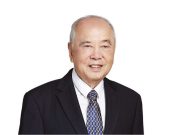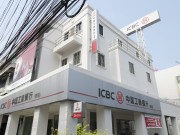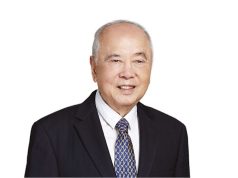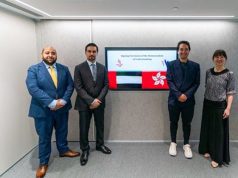HKUST & EY Family Enterprise Landscape of Family Offices in Greater China 2024: 50% SFOs with More than $250 Million AUM, 53% with More than $500 Million Wealth, SFOs Location Hong Kong 51%, Mainland China 24%, Singapore 14%, Top 5 Industries of Family Business are Real Estate, Consumer Products, Financial Services, Conglomerates & Manufacturing
29th March 2024 | Hong Kong
The HKUST Roger King Center for Asian Family Business & Family Office and EY Family Enterprise has released the Landscape of Family Offices in Greater China Report 2024, providing key insights into 160 family offices in Greater China (Mainland China & Hong Kong), Single Family Offices (SFOs), Multi-Family Offices (MFOs) & potential SFOs users. SFOs Location – Hong Kong 51%, Mainland China 24%, Singapore 14%, Others 11%. SFOs AUM – Less than $20 million 13%, $20 Million to $50 million 13%, $50 million to $100 million 13%, $100 million to $250 million 11%, More than $250 million 50%. Family Office Wealth – Less than $50 million 3%, $50 Million to $100 million 16%, $100 million to $250 million 18%, $250 million $500 million 11%, More than $500 million 53%. Top 3 Source of Wealth (Income) – Shareholder of the Family Business 52%, Professional Investment 33%, Senior Management of Operating Business 14%. Top 5 industries (family business) – Real Estate, Consumer Products, Financial Services, Conglomerates, Manufacturing. Origin of Founders – Mainland China 42%, Hong Kong 29%, Others 29%. SFO Duration (founded) – Less than 5 years 46%, 6 to 10 years 29%, 11 to 20 years 17%, More than 20 years 8%. SFO Team Size – 1 to 9 members 42%, 10 to 39 members 32%, More than 40 members 26%. Top 5 Services – Equity & Fixed Income Investment, Private Equity & Venture Capital (PEVC), Family Governance, Philanthropy, Succession Planning & Risk Management. Top 9 Services (In-house) – Family governance, Risk management, Succession planning, Philanthropy, Equity & fixed income investment, Private Equity & Venture Capital (PEVC), Family trust, Legal, tax planning, regulatory advisory & compliance, Impact investment. Top 9 Services (Outsourced) – Family trust, Private Equity & Venture Capital (PEVC), Legal, tax planning, regulatory advisory & compliance, Equity & fixed income investment, Risk management, Impact investment, Family governance, Philanthropy, Succession planning. SFO Wealth Management Strategy – Balanced 52%, Conservative 25%, Growth 23%. Asset Allocation by Region – Hong Kong 21%, Mainland China 21%, North America 20%, Europe 15%, APAC 13%, Others 10%. Top 5 Alternative Investments excludes PE/VC (Invested / Considering) – Real estate, Hedge fund & derivatives contracts, Art & antiques, Commodities, Cryptocurrency. Average Investment Returns of SFOs in the last 3 years – Negative returns: 4%, Between 0% to 9.99%: 58%, Between 10% – 20%: 31%, More than 20%: 7%. Formal governance structure in SFOs – Simple structure 66%, Detailed structure 25%, Considering to set it up soon 9%. SFOs Investment decisions – Investment Committee (family & non-family members) 47%, Family Members 39%, Non-family CIO 8%, Others 6%. Top 3 Risk Management items covered in SFOs – Investment risks 24%, Financial, tax, legal & compliance risks 20%, Family reputation 12%. Top 3 Preferred university education for next generation (Hong Kong SFOs) – United States, United Kingdom, Hong Kong. Top 3 Preferred university education for next generation (China Mainland SFOs) – Mainland China, United States, Hong Kong. Multi-Family Offices – Mainland China 71%, Hong Kong 21%, Others 8%. MFO Types – Independent commercial MFO 40%, Dependent commercial MFO (commercial bank, PB, IB, etc) 36%, Closed MFO (Do not engage new clients) 24%. Top 5 Products & Services Provided by the MFO – Equity & fixed income investment 23%, Alternative investment excluding Private Equity & Venture Capital (PEVC) 16%, Family trust 16%, Private Equity & Venture Capital (PEVC) 14%, Legal, tax planning, regulatory advisory & compliance matters 13%. Top 5 Professional services needed by MFOs – Tax planning & compliance support, Family Office set-up & operation advisory, Succession planning, Financial investment & asset management, Risk management. See below for key findings & summary | View report here
“ 50% SFOs with More than $250 Million AUM, 53% with More than $500 Million Wealth, SFOs Location Hong Kong 51%, Mainland China 24%, Singapore 14%, Top 5 Industries of Family Business are Real Estate, Consumer Products, Financial Services, Conglomerates & Manufacturing “
HKUST & EY Family Enterprise Landscape of Family Offices in Greater China 2024

The HKUST Roger King Center for Asian Family Business & Family Office and EY Family Enterprise has released the Landscape of Family Offices in Greater China Report 2024, providing key insights into 160 family offices in Greater China (Mainland China & Hong Kong), Single Family Offices (SFOs), Multi-Family Offices (MFOs) & potential SFOs users.
Summary:
- Respondents Profile – SFO 30%, MFO 33%, Potential SFO 37%
- Total Respondents – 160 single family offices (SFO), multi-family offices (MFO) & potential single family office users
- Family offices registered in Mainland China as of April 2021 – 1,461
- Family offices newly registered in less than one year between 2020 & 2021 – 503
Single Family Offices (SFOs):
- No. of Locations for SFOs – Single-location 71%, Multi-locations 29%
- SFOs Location – Hong Kong 51%, Mainland China 24%, Singapore 14%, Others 11%
- SFOs AUM – Less than $20 million 13%, $20 Million to $50 million 13%, $50 million to $100 million 13%, $100 million to $250 million 11%, More than $250 million 50%
- Family Office Wealth – Less than $50 million 3%, $50 Million to $100 million 16%, $100 million to $250 million 18%, $250 million $500 million 11%, More than $500 million 53%
- Top 3 Source of Wealth (Income) – Shareholder of the Family Business 52%, Professional Investment 33%, Senior Management of Operating Business 14%
- Top 5 industries (family business) – Real Estate, Consumer Products, Financial Services, Conglomerates, Manufacturing
- Origin of Founders – Mainland China 42%, Hong Kong 29%, Others 29%
- Respondents Roles – Non-Family Member 71%, Family Member (Founder / Current Leader) 26%, Family member (Other Role) 3%
- Gender of Respondents – Male 76%, Female 24%
- SFO Duration (founded) – Less than 5 years 46%, 6 to 10 years 29%, 11 to 20 years 17%, More than 20 years 8%
- SFO Team Size – 1 to 9 members 42%, 10 to 39 members 32%, More than 40 members 26%
- Top 5 Services – Equity & Fixed Income Investment, Private Equity & Venture Capital (PEVC), Family Governance, Philanthropy, Succession Planning & Risk Management
- Top 9 Services (In-house) – Family governance, Risk management, Succession planning, Philanthropy, Equity & fixed income investment, Private Equity & Venture Capital (PEVC), Family trust, Legal, tax planning, regulatory advisory & compliance, Impact investment
- Top 9 Services (Outsourced) – Family trust, Private Equity & Venture Capital (PEVC), Legal, tax planning, regulatory advisory & compliance, Equity & fixed income investment, Risk management, Impact investment, Family governance, Philanthropy, Succession planning
- SFO Wealth Management Strategy – Balanced 52%, Conservative 25%, Growth 23%
- Asset Allocation by Region – Hong Kong 21%, Mainland China 21%, North America 20%, Europe 15%, APAC 13%, Others 10%
- Top 5 Alternative Investments excludes PE/VC (Invested / Considering) – Real estate, Hedge fund & derivatives contracts, Art & antiques, Commodities, Cryptocurrency
- Average Investment Returns of SFOs in the last 3 years – Negative returns: 4%, Between 0% to 9.99%: 58%, Between 10% – 20%: 31%, More than 20%: 7%
- Impact investment allocation – None: 7%, Less than 10%: 60%, Between 11% to 20%: 11%, More than 20%: 22%
- Top 3 Future asset allocation strategy – More diversified asset classes 28%, More allocation to long-term investment 23%, More direct investment and private equity funds 18%
- Family engaged in philanthropic activities – Yes 84%, No 16%
- Family engaged in type of philanthropic activities – Private foundation / charitable trust / donor advised funds (DAFs) 53%, Conducted strategic philanthropy 25%, Monetary donation 22%
- Top 5 Philanthropic activities – Education 34%, Relief of human suffering (eg. poverty, hunger, natural disasters) 24%, Medical 22%, Causes of interest (eg. art, music, sport) 10%, Climate change 10%
- Family engaging in philanthropy – Family members – 69%, Only founder or leader 31%
- Family wealth allocated to philanthropy – Less than 10% of family wealth 67%, 10% – 20% of family wealth 30%, More than 20% of family wealth 3%
- Top 6 Family plans to nurture next generation – Best formal education, External working experience, Parental role models, Family philanthropy, Job Opportunities in the family business, Provide start-up fund to nurture entrepreneurship spirit
- Preferred university education for next generation – United States 30%,United Kingdom 22%, Mainland China 19%, Hong Kong 13%, Canada 9%, Australia 4%
- Top 3 Preferred university education for next generation (Hong Kong SFOs) – United States, United Kingdom, Hong Kong
- Top 3 Preferred university education for next generation (China Mainland SFOs) – Mainland China, United States, Hong Kong
- Formal governance structure in SFOs – Simple structure 66%, Detailed structure 25%, Considering to set it up soon 9%
- SFOs Investment decisions – Investment Committee (family & non-family members) 47%, Family Members 39%, Non-family CIO 8%, Others 6%
- Top 3 Risk Management items covered in SFOs – Investment risks 24%, Financial, tax, legal & compliance risks 20%, Family reputation 12%
- Top 3 Major Tax regulatory issues in SFOs – New or changing tax laws & regulations 35%, Requirements for global transparency & information exchange 31%, Increased complexity of tax compliance across multiple jurisdictions 23%
- Top 7 Challenges of managing SFO – Talent recruiting and retaining, Professionalize FO operation, Proper remuneration scheme & performance measurements, Trust between family & non-family members, Risk management, Searching for reliable service providers, Engaging more family members in the FO
- Top 5 Factors to select jurisdiction for SFO – Familiarity with country & geographical proximity, Tax regime for investments, An ecosystem to support FO, Ease of injection and repatriation of capital & monies, Stability & consistency of policies & legislation
- Top 4 Performance measurement of SFO – Percentage growth in AUM 37%, Risk adjusted ROI 37%, Operating costs 18%, Family effective tax rates 5%
- Top 5 Specific professional service that the family / SFO needs – Tax planning & compliance support 18%, Financial investment and asset management 13%, Next generation education 12%, Succession planning 11%, Family governance 10%
Multi-Family Offices (MFOs):
- Multi-Family Offices – Mainland China 71%, Hong Kong 21%, Others 8%
- Roles of Respondents – Other roles 29%, Family client 26%, Shareholder 24%, Family shareholder 21%
- MFO Types – Independent commercial MFO 40%, Dependent commercial MFO (commercial bank, PB, IB, etc) 36%, Closed MFO (Do not engage new clients) 24%
- Number of families served in MFO – Less than 10 families 31%, 11 to 20 families 26%, 21 to 50 families 24%, 51 to 100 families 5%, More than 100 families 14%
- Total wealth in MFO (family’s wealth) – Less than 20% of wealth 37%, 20% to 50% of wealth 47%, More than 50% of wealth 16%
- Top 5 Products & Services Provided by the MFO – Equity & fixed income investment 23%, Alternative investment excluding Private Equity & Venture Capital (PEVC) 16%, Family trust 16%, Private Equity & Venture Capital (PEVC) 14%, Legal, tax planning, regulatory advisory & compliance matters 13%
- Top 3 MFO future asset allocation strategy – More allocation to long-term investment 25%, More diversified asset classes 24%, More direct investment and private equity funds 18%
- MFO respondent has interest in setting up SFO – No 60%, Yes 40%
- Top 5 Professional services needed by MFOs – Tax planning & compliance support, Family Office set-up & operation advisory, Succession planning, Financial investment & asset management, Risk management
Potential Single Family Offices (SFOs) Users:
- Origin – Mainland China 78%, Hong Kong 10%, Taiwan 8%, Macau 2%, Others 2%
- Respondents Roles – Family Member 41%, Non-family Member 39%, Family Member (Founder / Leader) 20%
- Preferred SFOs Setup Location (Potential Users) – Hong Kong 40%, Mainland China 32%, Singapore 19%, Others 9%
- Preferred SFOs Setup Location (MFO Respondents) – Mainland China 56%, Hong Kong 20%, Singapore 20%, Others 4%
- Top 5 Professional services needed by Potential SFO users – Tax planning & compliance support, Financial investment & asset management, Next generation education, Succession planning, Family governance
- Top 4 Reasons to Setup SFO (Potential Users) – Wealth preservation & wealth growth 35%, Preservation of family harmony 28%, Explore other business opportunities for the family to enter / diversify into 22%, Preservation of family values & legacy 15%
- Top 4 Reasons to Setup SFO (MFO Respondents) – Wealth preservation & wealth growth 36%, Preservation of family harmony 36%, Preservation of family values & legacy 18%, Explore other business opportunities for the family to enter / diversify into 10%
- Top 4 Challenges to Setup SFO (Potential Users) – Lack of guidance / knowledge in establishing a Family Office 36%, Recruiting trustworthy external talents 34%, Cost of building up an SFO 16%, Choosing the right location 14%
- Top 4 Challenges to Setup SFO (MFO) – Recruiting trustworthy external talents 34%, Lack of guidance / knowledge in establishing a Family Office 31%, Cost of building up an SFO 21%, Choosing the right location 14%
HKUST & EY Family Enterprise Landscape of Family Offices in Greater China 2024
Type of Respondents:
- SFO – 30%
- MFO – 33%
- Potential SFO – 37%
Total Respondents: 160 single family offices (SFO), multi-family offices (MFO) & potential single family office users
Insights:
- Family offices registered in Mainland China as of April 2021 – 1,461
- Family offices newly registered in less than one year between 2020 & 2021 – 503
1) Background of Single Family Offices (SFOs)
No. of Locations for SFOs:
- Single-location – 71%
- Multi-locations – 29%
SFOs Location:
- Hong Kong – 51%
- Mainland China – 24%
- Singapore – 14%
- Others – 11%
SFOs AUM:
- Less than $20 million – 13%
- $20 Million to $50 million – 13%
- $50 million to $100 million – 13%
- $100 million to $250 million – 11%
- More than $250 million – 50%
Family Office Wealth:
- Less than $50 million – 3%
- $50 Million to $100 million – 16%
- $100 million to $250 million – 18%
- $250 million to $500 million – 11%
- More than $500 million – 53%
Source of Wealth (Income):
- Shareholder of the Family Business – 52%
- Professional Investment – 33%
- Senior Management of Operating Business – 14%
- Others Sources – 1%
Top 5 industries (family business):
- Real Estate – 26%
- Consumer Products – 13%
- Financial Services – 11%
- Conglomerates – 11%
- Manufacturing – 10%
Origin of Founders:
- Mainland China – 42%
- Hong Kong – 29%
- Others – 29%
Respondents Roles:
- Non-Family Member – 71%
- Family Member (Founder / Current Leader) – 26%
- Family member (Other Role) – 3%
Respondents Age:
- Age 18 to 30 – 2%
- Age 31 to 40 – 34%
- Age 41 to 50 – 29%
- Age 51 to 70 – 24%
- Age above 70 – 11%
Hong Kong Respondents:
- Age 18 to 30 – 8%
- Age 31 to 50 – 62%
- Above age of 50 – 30%
Mailand China Respondents:
- Age 18 to 30 – 17%
- Age 31 to 50 – 83%
- Above age of 50 – None
Gender of Respondents:
- Male – 76%
- Female – 24%
SFO Duration (founded):
- Less than 5 years – 46%
- 6 to 10 years – 29%
- 11 to 20 years – 17%
- More than 20 years – 8%
Hong Kong SFO Duration (founded):
- Less than 5 years – 38%
- 6 to 10 years – 25%
- 11 to 20 years – 25%
- More than 20 years – 12%
Mainland China SFO Duration (founded):
- Less than 5 years – 63%
- 6 to 10 years – 38%
- 11 to 20 years – None
- More than 20 years – None
2) Managing Single Family Offices (SFOs)
SFO Team Size:
- 1 to 9 members: 42%
- 10 to 39 members: 32%
- More than 40 members: 26%
Top 5 Services (In-house / Outsourced / Combination):
- Equity & Fixed Income Investment – 100%
- Private Equity & Venture Capital (PEVC) – 97%
- Family Governance – 95%
- Philanthropy – 95%
- Succession Planning & Risk Management – 92%
Top 9 Services (In-house):
- Family governance – 56%
- Risk management – 54%
- Succession planning – 51%
- Philanthropy – 51%
- Equity & fixed income investment – 45%
- Private Equity & Venture Capital (PEVC) – 32%
- Family trust – 25%
- Legal, tax planning, regulatory advisory & compliance – 23%
- Impact investment – 23%
Top 9 Services (Outsourced):
- Family trust – 30%
- Private Equity & Venture Capital (PEVC) – 30%
- Legal, tax planning, regulatory advisory & compliance – 29%
- Equity & fixed income investment -16%
- Risk management – 11%
- Impact investment – 10%
- Family governance – 8%
- Philanthropy – 8%
- Succession planning – 7%
SFO Wealth Management Strategy:
- Balanced – 52%
- Conservative – 25%
- Growth – 23%
Asset Allocation by Region:
- Hong Kong – 21%
- Mainland China – 21%
- North America – 20%
- Europe – 15%
- APAC – 13%
- Others – 10%
Top 5 Alternative Investments (Invested / Considering), excluding PE/VC:
- Real estate – 71%
- Hedge fund & derivatives contracts – 71%
- Art & antiques – 50%
- Commodities – 46%
- Cryptocurrency – 32%
Average Investment Returns of SFOs in the last 3 years:
- Negative returns: 4%
- Between 0% to 9.99%: 58%
- Between 10% – 20%: 31%
- More than 20%: 7%
Impact investment allocation:
- None: 7%
- Less than 10%: 60%
- Between 11% to 20%: 11%
- More than 20%: 22%
Future asset allocation strategy:
- More diversified asset classes – 28%
- More allocation to long-term investment – 23%
- More direct investment and private equity funds – 18%
- More co-investment – 13%
- More reserve for liquid assets – 11%
- More allocation to impact investing – 7%
Family engaged in philanthropic activities:
- Yes – 84%
- No – 16%
Top philanthropic activities by family:
- Private foundation / charitable trust / donor advised funds (DAFs) – 53%
- Conducted strategic philanthropy – 25%
- Monetary donation – 22%
Top 5 Philanthropic activities:
- Education – 34%
- Relief of human suffering (eg. poverty, hunger, natural disasters) – 24%
- Medical – 22%
- Causes of interest (eg. art, music, sport) – 10%
- Climate change – 10%
Family engaging in philanthropy:
- Family members – 69%
- Only founder or leader – 31%
Family wealth allocated to philanthropy:
- Less than 10% of family wealth – 67%
- 10% – 20% of family wealth – 30%
- More than 20% of family wealth – 3%
Top 6 Family plans to nurture next generation:
- Best formal education – 23%
- External working experience – 20%
- Parental role models – 18%
- Family philanthropy – 14%
- Job Opportunities in the family business – 13%
- Provide start-up fund to nurture entrepreneurship spirit – 11%
Top 6 Preferred university education for next generation:
- United States – 30%
- United Kingdom – 22%
- Mainland China – 19%
- Hong Kong – 13%
- Canada – 9%
- Australia – 4%
- Others – 3%
Top 3 Preferred university education for next generation (Hong Kong SFOs):
- United States
- United Kingdom
- Hong Kong
Top 3 Preferred university education for next generation (China Mainland SFOs):
- Mainland China
- United States
- Hong Kong
Formal governance structure in SFOs:
- Simple structure – 66%
- Detailed structure – 25%
- Considering to set it up soon – 9%
SFOs Investment decisions:
- Investment Committee (family & non-family members) – 47%
- Family Members – 39%
- Non-family CIO – 8%
- Others – 6%
Top 9 Risk Management items covered in SFOs:
- Investment risks – 24%
- Financial, tax, legal & compliance risks – 20%
- Family reputation – 12%
- Political risks – 10%
- Cyber, technology & digital risks – 9%
- Physical & personal security – 6%
- Marriage / divorce risks – 6%
- Social risks – 5%
- Environmental risks – 5%
- None – 2%
Top 5 Major Tax regulatory issues in SFOs:
- New or changing tax laws & regulations – 35%
- Requirements for global transparency &information exchange – 31%
- Increased complexity of tax compliance across multiple jurisdictions – 23%
- Increased regulatory uncertainty in the wake of pandemic – 6%
- The movement towards digital tax filing processes – 5%
Investing in Digital technologies & tools (in next 2 years):
- Workflow collaboration tools – 30%
- Cybersecurity & cybersecurity incident response support – 20%
- Virtual & secure communication tools (video conferencing) – 17%
- IT hardware (laptops, monitors, etc) – 16%
- Business intelligence – 9%
- Family portal technology – 8%
Top 7 Challenges of managing SFO:
- Talent recruiting and retaining – 28%
- Professionalize FO operation – 17%
- Proper remuneration scheme & performance measurements – 14%
- Trust between family & non-family members – 14%
- Risk management – 13%
- Searching for reliable service providers – 8%
- Engaging more family members in the FO – 5%
Top 8 Factors to select jurisdiction for SFO:
- Familiarity with country & geographical proximity – 15%
- Tax regime for investments – 15%
- An ecosystem to support FO – 13%
- Ease of injection and repatriation of capital & monies – 13%
- Stability & consistency of policies & legislation – 12%
- Safe social environment – 11%
- Regulatory framework & compliance requirements – 10%
- Global mobility for family members – 10%
Top 4 Performance measurement of SFO:
- Percentage growth in AUM – 37%
- Risk adjusted ROI – 37%
- Operating costs – 18%
- Family effective tax rates – 5%
- Others – 3%
Top 5 Specific professional service that the family / SFO needs:
- Tax planning & compliance support – 18%
- Financial investment and asset management – 13%
- Next generation education – 12%
- Succession planning – 11%
- Family governance – 10%
3) Multi-Family Offices (MFOs)
Multi-Family Offices
- Mainland China – 71%
- Hong Kong – 21%
- Others – 8%
Roles of Respondents:
- Other roles of the MFO – 29%
- Family client of the MFO – 26%
- Shareholder of the MFO – 24%
- Family shareholder of the MFO – 21%
Respondents Age:
- Age 18 to 30 – 2%
- Age 31 to 40 – 38%
- Age 41 to 50 – 43%
- Age 51 to 60 – 17%
Gender of Respondents:
- Male – 55%
- Female – 45%
MFO Types:
- Independent commercial MFO – 40%
- Dependent commercial MFO (commercial bank, PB, IB, etc) – 36%
- Closed MFO (Do not engage new clients) – 24%
Number of families served in MFO:
- Less than 10 families – 31%
- 11 to 20 families – 26%
- 21 to 50 families – 24%
- 51 to 100 families – 5%
- More than 100 families – 14%
Total wealth in MFO (family’s wealth):
- Less than 20% of wealth – 37%
- 20% to 50% of wealth – 47%
- More than 50% of wealth – 16%
Top 7 Products & Services Provided by the MFO:
- Equity & fixed income investment – 23%
- Alternative investment excluding Private Equity & Venture Capital (PEVC) – 16%
- Family trust – 16%
- Private Equity & Venture Capital (PEVC) – 14%
- Legal, tax planning, regulatory advisory & compliance matters – 13%
- Family philanthropy – 10%
- Impact investment – 6%
MFO future asset allocation strategy:
- More allocation to long-term investment – 25%
- More diversified asset classes – 24%
- More direct investment and private equity funds – 18%
- More co-investment – 12%
- More reserve for liquid assets – 11%
- More allocation to impact investing – 8%
MFO respondent has interest in setting up SFO:
- No – 60%
- Yes – 40%
Top Professional services needed by MFOs:
- Tax planning & compliance support – 14%
- Family Office set-up & operation advisory – 13%
- Succession planning – 12%
- Financial investment & asset management – 10%
- Risk management – 10%
- Next generation education – 9%
- Philanthropy – 8%
- Family governance – 7%
- Global mobility / relocation of family members – 7%
- Digital technology & IT support – 6%
- M&A support – 4%
4) Potential Single Family Offices (SFOs) Users:
Potential Single Family Offices (SFOs) Users:
- Mainland China – 78%
- Hong Kong – 10%
- Taiwan – 8%
- Macau – 2%
- Others – 2%
Respondents Age:
- Age 18 to 30 – 12%
- Age 31 to 40 – 47%
- Age 41 to 50 – 27%
- Age 51 to 70 – 12%
- Age above 70 – 2%
Respondents Roles:
- Family Member – 41%
- Non-family Member – 39%
- Family Member (Founder / Leader) – 20%
Preferred SFOs Setup Location (Potential Users):
- Hong Kong – 40%
- Mainland China – 32%
- Singapore – 19%
- Others – 9%
Preferred SFOs Setup Location (MFO Respondents):
- Mainland China – 56%
- Hong Kong – 20%
- Singapore – 20%
- Others – 4%
Top Professional services needed by Potential SFO users:
- Tax planning & compliance support – 18%
- Financial investment & asset management – 13%
- Next generation education – 12%
- Succession planning – 11%
- Family governance – 10%
- Risk management – 9%
- Family Office set-up & operation advisory – 7%
- Global mobility / relocation of family members – 6%
- Philanthropy – 4%
- Digital technology & IT support – 4%
- M&A Support – 4%
Top 4 Reasons to Setup SFO (Potential Users):
- Wealth preservation & wealth growth – 35%
- Preservation of family harmony – 28%
- Explore other business opportunities for the family to enter / diversify into – 22%
- Preservation of family values & legacy – 15%
Top 4 Reasons to Setup SFO (MFO Respondents):
- Wealth preservation & wealth growth – 36%
- Preservation of family harmony – 36%
- Preservation of family values & legacy – 18%
- Explore other business opportunities for the family to enter / diversify into – 10%
Top 4 Challenges to Setup SFO (Potential Users):
- Lack of guidance / knowledge in establishing a Family Office – 36%
- Recruiting trustworthy external talents – 34%
- Cost of building up an SFO – 16%
- Choosing the right location – 14%
Top 4 Challenges to Setup SFO (MFO Respondents):
- Recruiting trustworthy external talents – 34%
- Lack of guidance / knowledge in establishing a Family Office – 31%
- Cost of building up an SFO – 21%
- Choosing the right location – 14%
The Survey
The online survey was distributed to the collaborating families and institutions of the Center, clients of EY Family Enterprise, collaborating institutions of InvestHK of the Hong Kong SAR government, members and collaborating institutions of Family Office Association Hong Kong (“FOAHK”), and clients and collaborating institutions of China CITIC Bank, representing a broad perspective of family offices in the region. The questionnaire was thoughtfully designed to encompass various aspects of family offices, organized into three distinct sets of questions tailored for respondents identified as SFOs, MFOs, or potential SFO users. From August 2022 to August 2023, we collected data from 160 respondents, including founders/leaders, senior management, and family members associated with family offices.
- SFO – 30%
- MFO – 33%
- Potential SFO – 37%
HKUST Business School
The School of Business and Management of The Hong Kong University of Science and Technology (HKUST Business School) is young, innovative and committed to advancing global business knowledge. The School has forged an international reputation for world class education programs and research performance, and has received many top global rankings. Always striving for excellence, the School’s strength lies in its full range of program offerings, high quality research conducted by world class faculty, as well as diverse and high-caliber students. Through its close collaboration with businesses, universities and research institutions worldwide, HKUST Business School seeks to advance business education and research and contribute to the economic and social advancement of the region.
HKUST Roger King Center for Asian Family Business and Family Office
The Roger King Center for Asian Family Business and Family Office aims to be the world’s premier research and teaching center for Asian family businesses and family offices especially ethnic Chinese family businesses and family offices. The Center brings together academics, policymakers and practitioners in an environment conducive to sharing their wisdom, failures, and successes for the benefit of future generations of family business leaders and communities in which they live. Recognizing the multi-disciplinary nature of the field of family business and family office, the Center collaborates with various disciplines at HKUST and institutions around the world to organize academic and industry events such as seminars and forums, provide both custom and open programs, conduct and publish top-quality academic research and articles in leading journals and media, and write and teach cases on Asian family businesses and family offices.
EY
EY exists to build a better working world, helping create long-term value for clients, people and society and build trust in the capital markets. Enabled by data and technology, diverse EY teams in over 150 countries provide trust through assurance and help clients grow, transform and operate. Working across assurance, consulting, law, strategy, tax and transactions, EY teams ask better questions to find new answers for the complex issues facing our world today.
EY Family Enterprise
As trusted advisors to ambitious business-owning families, including more than 90% of the world’s top 500 family enterprises, EY teams have the experience and know-how to help the entire family enterprise — families, their family business and their family office — pursue growth opportunities while preserving values and building the family legacy. Drawing from more than 100 years of experience supporting the world’s most entrepreneurial families, EY Family Enterprise professionals are experienced in pinpointing and helping to optimize the drivers that impact family businesses’ growth and longevity, preserve wealth and culture, and solidify multigenerational legacies.
Sign Up / Register
Caproasia Users
- Manage $20 million to $3 billion of assets
- Invest $3 million to $300 million
- Advise institutions, billionaires, UHNWs & HNWs
Caproasia Platforms | 11,000 Investors & Advisors
- Caproasia.com
- Caproasia Access
- Caproasia Events
- The Financial Centre | Find Services
- Membership
- Family Office Circle
- Professional Investor Circle
- Investor Relations Network
Monthly Roundtable & Networking
Family Office Programs
The 2025 Investment Day
- March - Hong Kong
- March - Singapore
- July - Hong Kong
- July - Singapore
- Sept- Hong Kong
- Sept - Singapore
- Oct- Hong Kong
- Nov - Singapore
- Visit: The Investment Day | Register: Click here
Caproasia Summits
- The Institutional Investor Summit
- The Investment / Alternatives Summit
- The Private Wealth Summit
- The Family Office Summit
- The CEO & Entrepreneur Summit
- The Capital Markets Summit
- The ESG / Sustainable Investment Summit









































